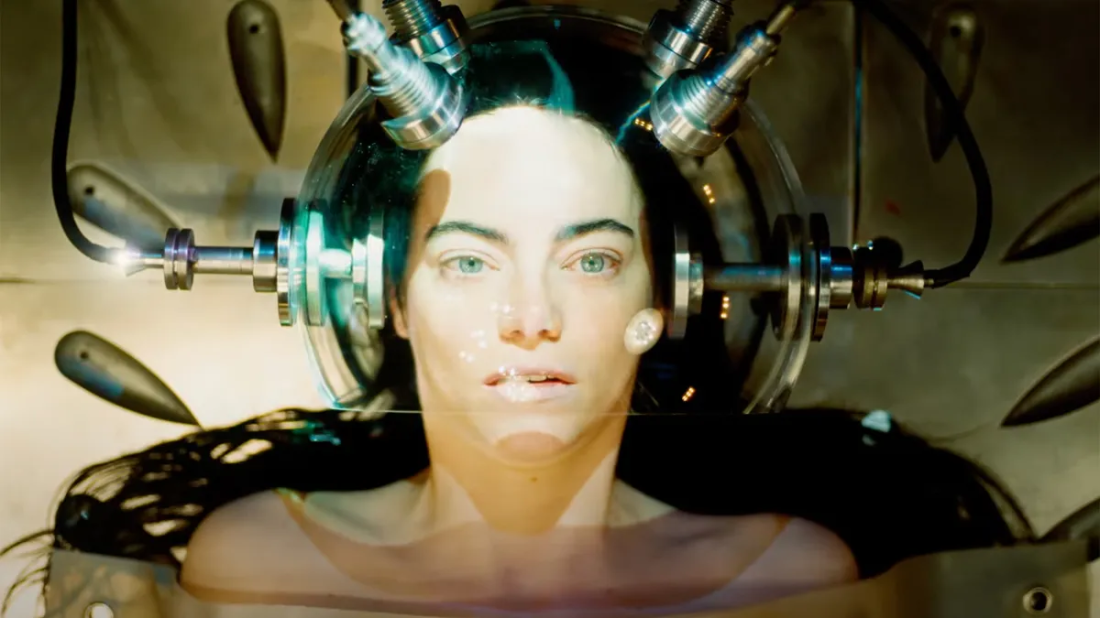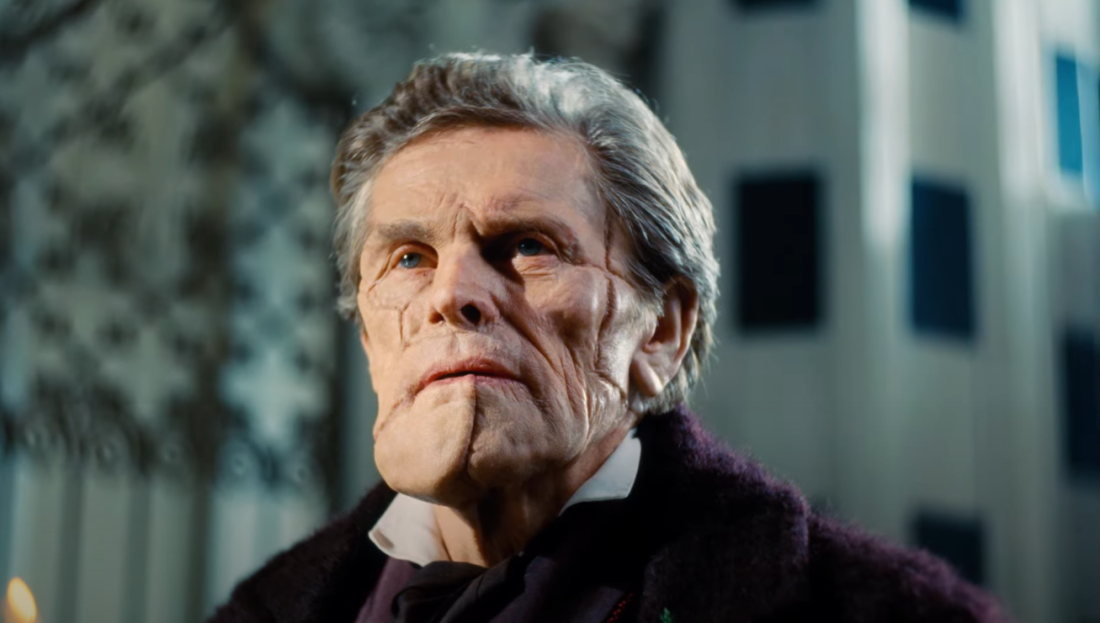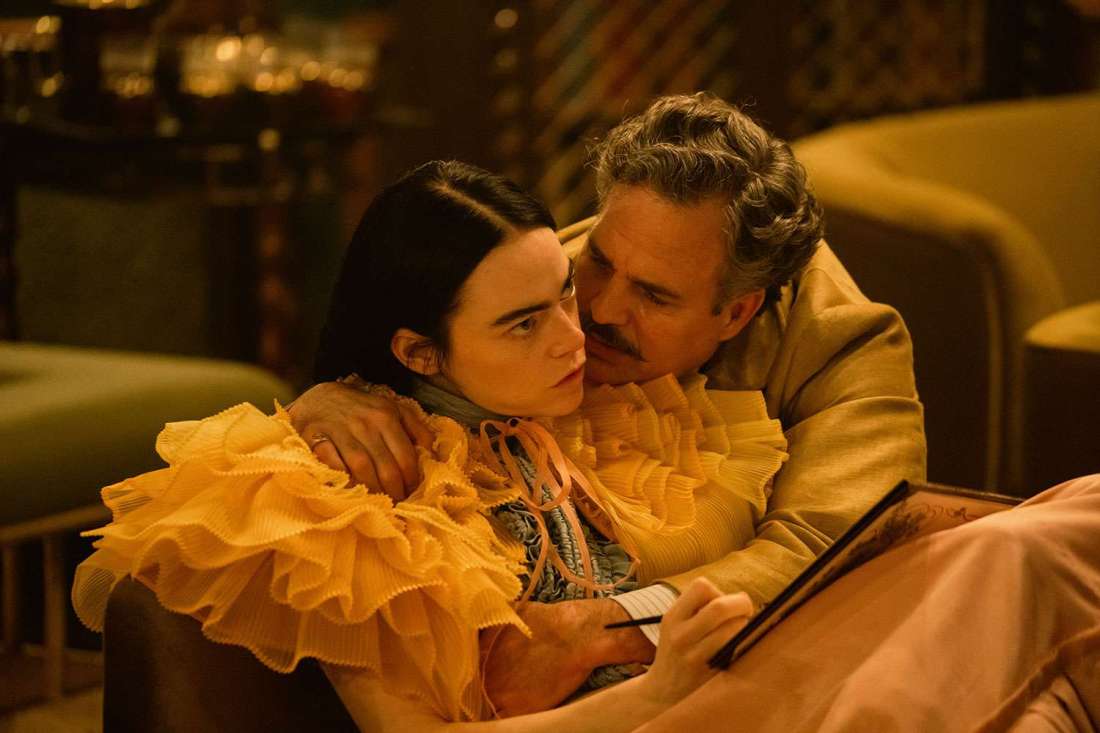Poor Things (2023) is an absurdist dark-comedy drama film from director Yorgos Lanthimos and writer Tony McNamara. It stars Emma Stone as Bella Baxter, a woman who is implanted with the brain of an infant and must re-learn how to experience life. The film debuted at the Venice Film Festival, where it won the top prize of the Golden Lion, and released in theaters on December 8th. Can this win Emma Stone her second Oscar?

I’ve always admired Yorgos Lanthimos’ films, though I often vary in how much I actually connect with them on an emotional level. He has a propensity for exploring the darkest aspects of humanity, which at times reminds me of someone like Stanley Kubrick in its deep cynicism about the inherent goodness of people. This film certainly explores some abhorrent behavior, from domestic abuse to sexual assault to human trafficking and much more of the worst of human beings. But what struck me about Poor Things is in its ultimately optimistic tone, as though Lanthimos leaves us with the impression that humans are actually decent at heart and can be redeemed of their terrible behavior. As Godwin Baxter tells us at the beginning Bella’s story is “a happy tale” that highlights the hypocrisy of humans but leaves room for them to change their ways and find redemption.
There is a recurring theme of Bella being controlled by the men in her life, and her constant attempts to gain agency from them. This is first seen with God, her surrogate father, who yearns to keep Bella close and free from the harm of the world, as she scrambles to escape. Then she runs off with Duncan, who is deeply jealous of her relationships with other men and concocts various schemes to keep her close. Bella’s ex-husband shows up at one point and brings her home, proving to be a deeply unpleasant and malicious individual who wants her to bear his child but not enjoy the act of creating it in the slightest. Even when Bella takes control of her own life and works as a prostitute, her clients exhibit a level of control over her that makes her uncomfortable. The difficulties of navigating the modern (or whatever the hell time period we are in) world as a woman are at the focus of the story, and Bella’s journey has her understanding what exactly being female means.

Sexuality is explored in depth as Bella comes to realize the carnal pleasures of the body and the enjoyment two people can create alone in bed together. More specifically, Lanthimos and McNamara explore the ambiguities of societal attitudes towards sex, and the way we are both repulsed by it and irrevocably drawn to it. For instance, Duncan is at first smitten with Bella for her sexually forward demeanor, but later is angry when she continues to exhibit sexual desires outside of their relationship. Duncan even brags that he has been with “hundreds” of women and is therefore quite good at sex, but is horrified when Bella begins cycling through men at a similar pace, highlighting the double standard between men and women. Bella sees sex as an act of empowerment, even as she prostitutes herself for money – though she draws the line at faking pleasure when there is none to be had, much to the consternation of her clients (and her pimp).
There is also a subtle theme of religion and philosophy at play as Bella explores the world and all the various viewpoints it has to offer. This is most clearly seen at the beginning, as she calls her surrogate father “God” and has a Garden of Eden-esque storyline yearning to break free of the confines he has placed her within. After she leaves home, she starts to read and learn about other worldviews, interacting with wealthy cynicists and working-class socialists. She winds up forming her own opinions based on her naïve perspective on the world, even though she eventually comes to realize that life is far more complicated and nuanced than she gives it credit for. It’s crucial that Bella is raised by a scientist, because it allows her to view the world from the foundation of the scientific method to make rational conclusions based on empirical evidence. For all the whacky and arguably immoral scientific experimentation happening in this film, it is arguably the best cinematic example of a character using science to shape her understanding of the world from as objective a standpoint as possible.

I had a funny little moment while walking out of the theater from this film, as I passed by a poster promoting my local theater’s upcoming screening of the Will Ferrell classic Christmas comedy Elf. It made me realize that the two films actually have quite a bit in common: both feature grown adults with childlike minds entering the real world and experiencing it for the first time. And in both cases, there is a magical quality of discovery that allows us to look at society from a perspective many of us haven’t in quite some time: through the eyes of a child. The way Bella thinks about the world is so innocent and pure that at times it’s hilarious, and other times makes us scratch our heads and think “wait, why DO we do things this way??!” That is what ultimately makes this film work so well for me: its heady themes and whacky sentimentalities are ultimately funneled through Bella’s narrow perspective, so that we come to reassess our own thoughts on the way the world works.
Story aside, this film contains some of the most incredible worldbuilding I’ve ever seen, with elaborate sets and fantastical cinematography. It’s an intentionally anachronistic world, vaguely set a century in the past but with unrecognizable locales and technology. The production design is unbelievable, and rivals Barbie for the best creation of a brand-new iconic world in a film this year. I also really dug the editing of the film, as Yorgos maximizes the humor of the story by smash-cutting to the most ridiculous, juxtaposed images (the cut to the goat in the last five minutes drew raucous laughter in my theater). I also have to mention the unreal acting from the entire ensemble, particularly Emma Stone, who fully commits to this role with the performance of a lifetime. Mark Ruffalo is also hilarious as the womanizing Duncan, Willem Dafoe is frightening but oddly sympathetic as Godwin, while the likes of Jerrod Carmichael, Ramy Youssef, and Kathryn Hunter also shine in their limited screen time.

Conclusion
Poor Things is weird, whacky, and outlandish, but also oddly relatable and optimistic about life. Like many other Yorgos Lanthimos films, this one examines the darkest aspects of humanity, but crucially it leaves us with a ray of hope that people can change, grow and reform. Bella Baxter is one of the most unique and memorable movie protagonists I can remember in a long while, and Emma Stone brings her to life with easily one of the best performances of the entire year. The immaculate visuals, flawless ensemble cast, and insightful script add up to an incredible film experience that must been seen to be believed!
VERDICT: A
-Austin Daniel
All image rights belong to Searchlight Pictures.